
 |
Exam-Style Questions on TransformationsProblems on Transformations adapted from questions set in previous Mathematics exams. |
1. | GCSE Higher |
Shape A can be transformed to shape B by a reflection in the y-axis followed by a
translation \( {c \choose d} \)
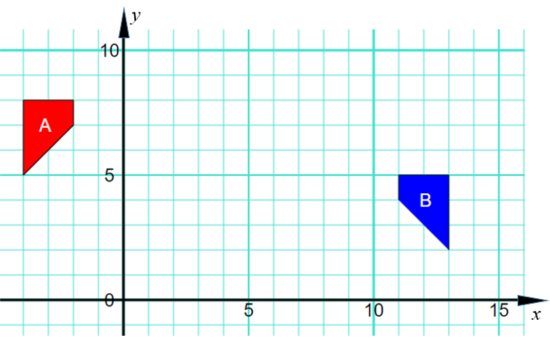
Find the value of \(c\) and the value of \(d\).
2. | GCSE Higher |
The shape A is drawn on the coordinate grid as shown below.
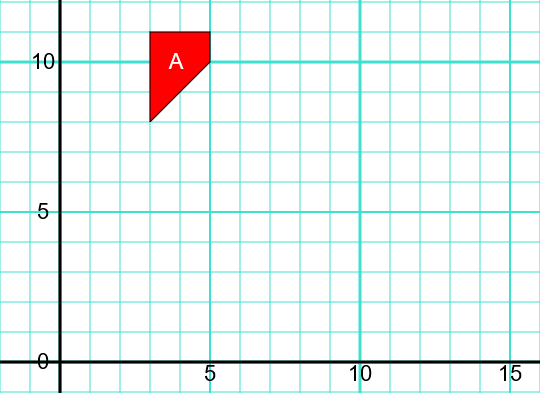
Sally and Eddie each transform the shape A onto shape B.
(a) Draw and label shape B.
(b) Describe fully Eddie's favourite transformation.
3. | GCSE Higher |
The diagram shows a red trapezium drawn on a grid.
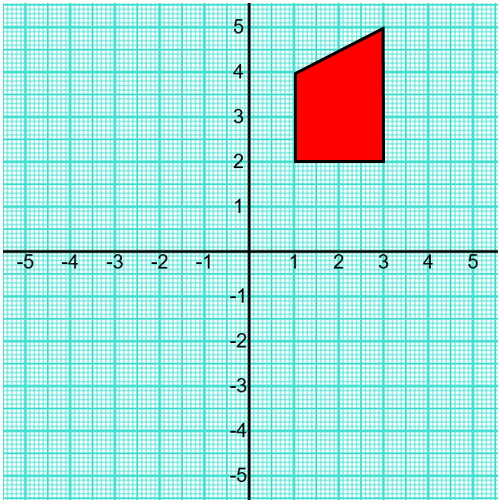
The trapezium is subjected to two transformations, one after the other.
One transformation is a reflection in the line \(y=x\).
The other transformation is a reflection y-axis.
Does it matter in which order these transformations are made? Explain your answer.
4. | GCSE Higher |
(a) Shape \(A\) is translated to shape \(B\) using the vector \( \begin{pmatrix}m\\n\\ \end{pmatrix}\). What are the values of \(m\) and \(n\)?
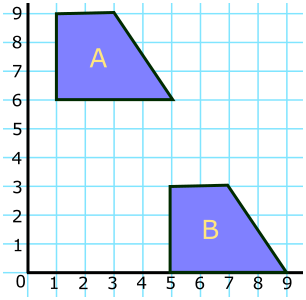
(b) Vectors \(a, b, c, d\) and \(e\) are drawn on an isometric grid. Write each of the vectors \(c, d\) and \(e\) in terms of \(a\) and/or \(b\).
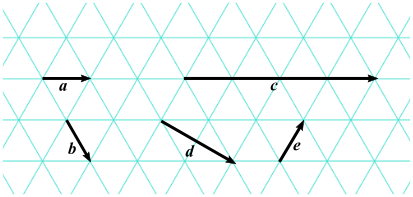
5. | GCSE Higher |
The diagram shows a trapezium A on a grid.
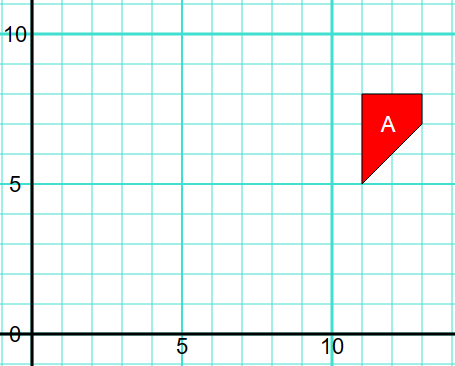
Trapezium A is reflected in the line \(x=10\) to give trapezium B.
Trapezium B is translated by \(\begin{pmatrix} -6 \\ -3 \\ \end{pmatrix} \) to give trapezium C.
(a) Draw the trapezia B and C on the grid above.
(b) Trapezium C is reflected in the line \(y=5\) to give trapezium D. What are the coordinates of the centre of a 180° rotation that would map trapezium D onto trapezium A?
6. | GCSE Higher |
The following points have been plotted then joined up in order to make an irregular hexagon.
$$(-3,-1), (-2,-2), (-1,-2), (0,-1), (-1,-4), (-2,-4)$$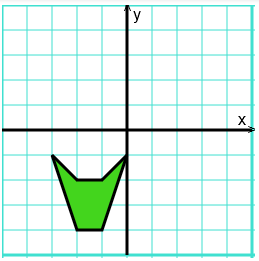
Enlarge the hexagon by a scale factor of \(2\frac12 \), centre (-3,-4).
7. | GCSE Higher |
Describe fully the single transformation which maps the UFO on the left to the UFO on the right of this image drawn on a coordinate grid.
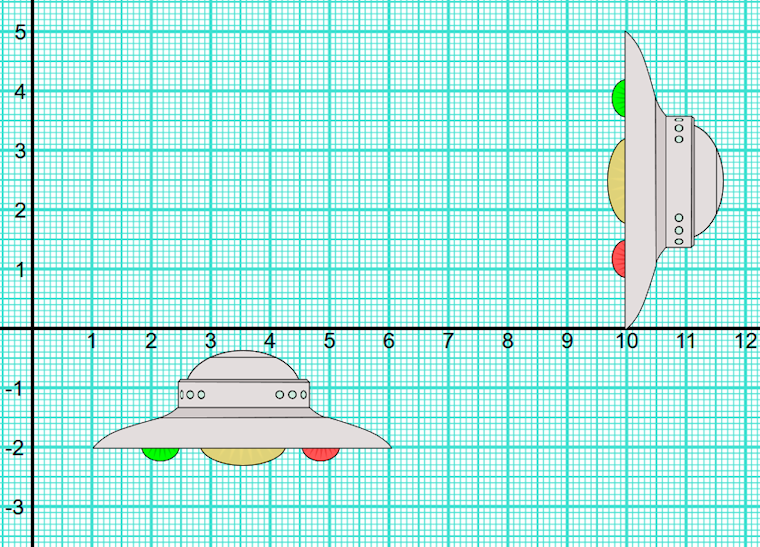
8. | GCSE Higher |
Describe fully the single transformation that maps trapezium A onto trapezium B.
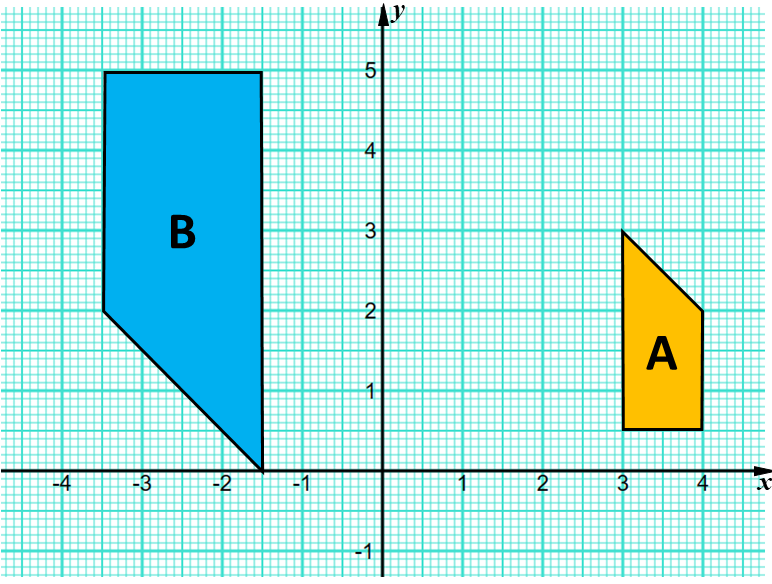
9. | GCSE Higher |
The graph of the curve with equation y = \(f(x)\) is shown on the grid below.
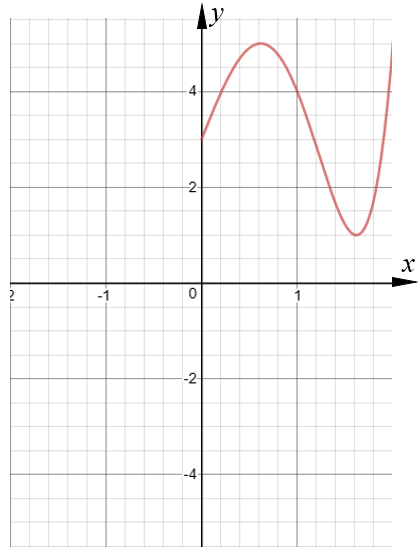
(a) On the grid above, sketch the graph of the curve with equation \(y = f(–x)\)
The red curve with equation \(y = x^2-5x+4\) is transformed by a translation to give the blue curve such that the point (2.5, -2.25) on the red curve is mapped to the point (-2.5, -2.25) on the blue curve.
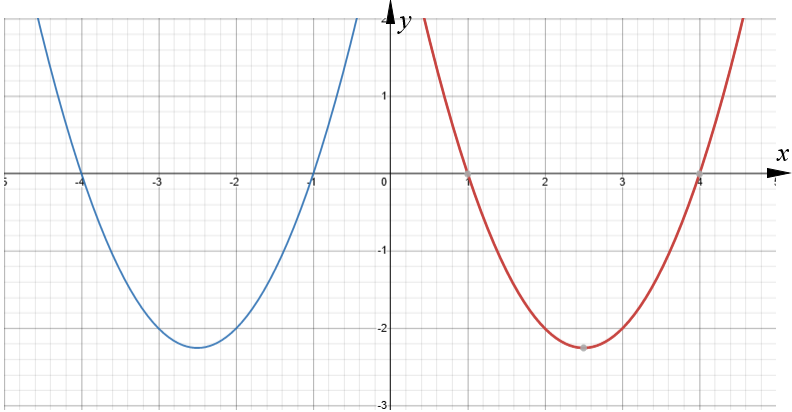
(b) Find an equation for the blue curve.
10. | IB Analysis and Approaches |
Part of the graph of a function, \(f\) , is shown in the following diagram. The graph of \(y = f(x)\) has a y-intercept at \((0, 1.5)\) , an x-intercept at \((a , 0)\) and horizontal asymptotes \(y = 5\) and \(y = -2\).
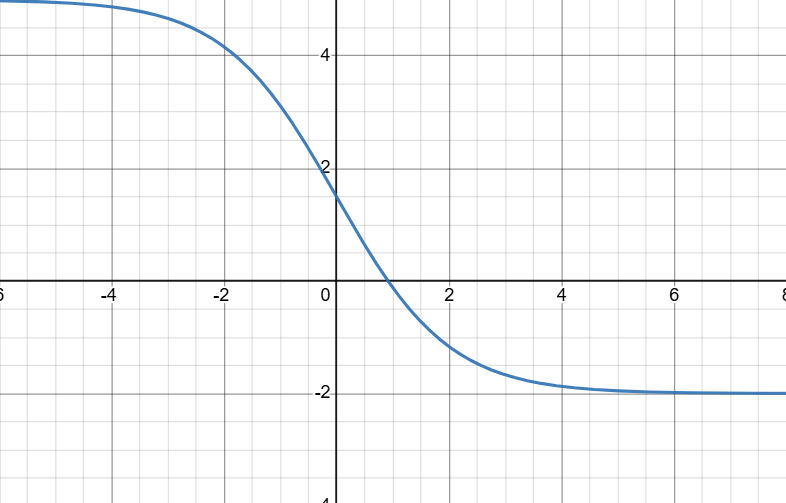
Consider the function \(g(x) = |f(|x|)| \)
(a) Sketch the graph of \(y = g(x)\), labelling any axis intercepts and giving the equation of the asymptotes.
(b) Find the possible values of \(k\) such that \( (g(x))^2 = k \) has exactly four solutions.
If you would like space on the right of the question to write out the solution try this Thinning Feature. It will collapse the text into the left half of your screen but large diagrams will remain unchanged.
The exam-style questions appearing on this site are based on those set in previous examinations (or sample assessment papers for future examinations) by the major examination boards. The wording, diagrams and figures used in these questions have been changed from the originals so that students can have fresh, relevant problem solving practice even if they have previously worked through the related exam paper.
The solutions to the questions on this website are only available to those who have a Transum Subscription.
Exam-Style Questions Main Page
To search the entire Transum website use the search box in the grey area below.